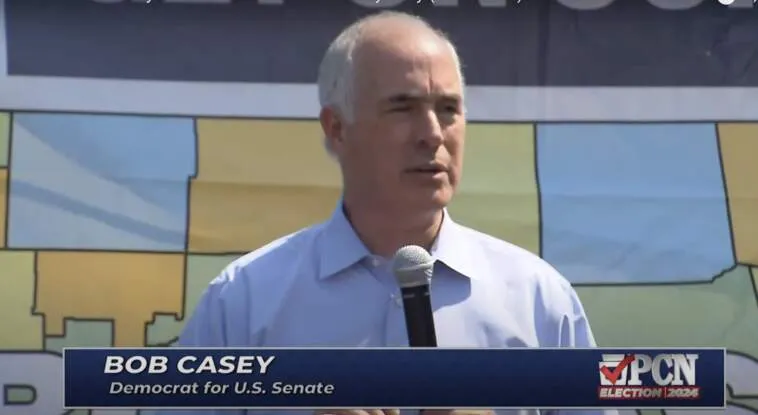(The Hill) There are seven presidential swing states, five of which also have U.S. Senate races. That’s important because Senate races, like the presidential race, are statewide. While polling indicates that Democratic presidential nominee Kamala Harris and Republican presidential nominee Donald Trump are essentially tied or close to it in those states, the Democratic Senate candidates are leading in all five states, and in some cases by a lot.
To put it simply, if the swing-state Democratic Senate candidates win by anywhere near their current margin, Trump will likely lose those states — and the election.
I wrote about this last May, when President Joe Biden was still in the race. Swing-state Democratic Senate candidates were ahead of their Republican opponents — or likely Republican opponents, since some states had not yet held their primaries. Post-Labor Day, those Democratic candidates are even further ahead.
Let’s start with Arizona, which is an open Senate seat (i.e., no incumbent). According to Real Clear Polling, Democrat Ruben Gallego leads Republican Kari Lake by 8.2 points in RCP’s average of polls, with a spread, depending on the day and the polling firm, of between 4 and 15 points over the past two weeks.
In Pennsylvania, Democratic Sen. Bob Casey is leading Republican David McCormick by 6.5 points in the RCP average, with a spread of between 3 and 14 points over the past few weeks.
Democratic Sen. Tammy Baldwin of Wisconsin is leading Republican Eric Hovde by an average of 6.4 points, with a spread of between 1 and 10 points. In Michigan’s open Senate seat, Democrat Elissa Slotkin leads Republican Mike Rogers by an average of 4.7 points with a spread of between 2 and 10 points.
Finally, in Nevada, Democratic Sen. Jacky Rosen is beating Republican Sam Brown by 10.8 points, with a two-week spread of between 9 and 14 points.
In fact, if you look at Real Clear’s tracking of the five swing-state Senate races over the past several months, the Republican candidate has never led in any of them.
And while swing-state North Carolina doesn’t have a Senate race, it’s the only swinger with a gubernatorial election, which, like Senate and presidential elections, is statewide. There, the Democratic candidate, Josh Stein, has a pretty solid lead over Republican Mark Robinson. RCP has Stein up between 5 and 14 points in the various August polls.
Here’s the point. If current polls are accurately reflecting swing-state voters’ choices for their respective Senate candidates, those leads will likely determine those states’ choice for president.
It’s true that some voters will split their vote, supporting a Republican for one office and a Democrat for a different office. But that trend is down. According to a Pew Research Center poll just before the 2020 presidential election, only 4 percent said they would consider voting for either Donald Trump or Joe Biden and a Senate candidate from the other party.






